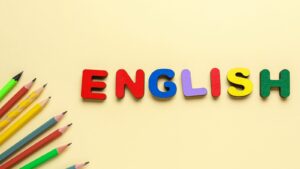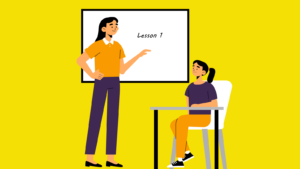Teaching English for Job Hunting
In 9 years of teaching Job skills to Korean university students, I have seen almost every mistake possible. Based on this experience, and experience from being on interview committees for a number of departments and programs over the years, here is my best advice for teaching my students how NOT to mess up their search for a good job and for teaching English for job hunting.
The CV/Cover letter need to be perfect!
Almost every one of my students wants to claim they are high intermediate or fluent English users on their CV, but most fail to do a basic spell or grammar check, and as a result their own documents prove that they are lying. Basic errors in capitalisation, grammar or even punctuation on the cover letter or CV will weaken even the best content. It can be hard for the reader to ignore them and solely concentrate on what you are offering the employer.
Impression is everything (at least at the start)
Documents should represent the best the candidate has to offer a prospective employer. If the format is not professional and consistent it makes an applicant look bad. Use a functional or skills based CV to highlight skills – suggested for students with little related experience – or a chronological CV to highlight a candidate’s related education and experience more effectively. The wrong format highlighting the information inappropriately may keep employers away.
You are the product the company needs to ‘buy‘
It is not about offering only what the company is asking for in the job ad or on the company website. It is about proving why YOU are the best candidate for the job as well as the best fit for the company and job being advertised. If you can’t do this effectively, the other people waiting outside the door will be happy to take the job for themselves.
The power of ‘stories’
It is not enough to prepare for all of the typical and atypical interview questions. I prepare my students to deal with a whole host of interview questions with their own stories from their university or internship experience. By highlighting skills like interpersonal skills, communication skills and other commonly sought skills using techniques like Situation/Task, Action and Response (STAR) they can focus on highlighting their own successes and use them to comfortably answer a variety of interview questions at the same time.
Questions, Shmestions!
Most candidates focus on the questions asked and then memorise what they think are the best answers to them. However, it is not the question that is being asked that matters but rather the intention behind the question. For example, most employers do not care what your weaknesses are unless they would keep you from doing the job. The intention is to see how you are trying to solve your problems or whether your weakness (meeting goals or deadlines well) is actually a strength.
Knowledge is power (Know the company/industry and know yourself)
What is the dress code for the company? What is the average salary within the industry? Do employees stay there for a long time or is there frequent turnover? It is not enough to focus attention only on getting any job at any company only to be laid off because they are in financial trouble. You need to research as much as you can before the interview so you can ensure that you are getting the best job possible. Employers will respect someone who knows their company well before they arrive at the interview-especially if you can demonstrate this knowledge during the interview itself.
Give them more than they expect
The ad rarely tells you everything about the job and company’s needs. If they have a company soccer team and you are a good soccer player, then you may want to bring it up during the interview or in your cover letter. Or if you have language skills and cultural knowledge and they are moving into a new country you know well, make sure they take note.
Use the Hot seat to prepare and practice
A few terms ago I decided to modify the Hot seat game for use in my job skills class. The idea is simple. I teach one type of interview question in class one of the week and they practice answering it in pairs or groups. Then, in class two, each student sits at the front of the class and the other students and instructor ask them a few questions which they answer as best they can. Once each student has answered all the questions, the class gives them a few comments on what they did well and not so well. Then, the whole class votes whether to hire them or not based on their answers. While they often hate it at first, by the end of the class they are well prepared and confident in handling nearly any type of question they are asked.
If you are unable to find the happiness in your job, you are doing the wrong job
Research by Daniel H. Pink, Sean Achor, and Barry Schwarz among others has shown that people who are happy in their jobs positively influence themselves and those around them. This inevitably spills over into other aspects of their lives. Remember, you will most likely spend 30-40 years working so you should enjoy it on some level or you will most likely regret it over the short and long terms.
Think Job, Profession, Career for the short and long term.
Having had 4 teaching jobs to date as well as a number of part time or additional jobs during my career, I am confident when I say that it is not enough to think only about the job you are applying for today. Chances are good that this job will not be your only job and that is a good thing as long as you plan your next steps. Your job pays the bills and is a stepping stone to another job through promotion or changing jobs within or outside of the company. Profession is a combination of your skills, education and experience that make you a professional in one or more fields (e.g. education, advertising, law or medicine). Your career spans the entirety of your working life and may be made up of any number of jobs or even professions. While it is probably not a good idea to hop from job to job every few months, neither is it a reasonable expectation that you will work for one company or even solely in one field for your entire working life. Make the most of this by doing some basic planning and knowing when to make the move to a better job.
Finally, remember that the CV and cover letter open the door to the interview, but the interview gets you the job.
Job interview roleplay from Marjorie Rosenberg




